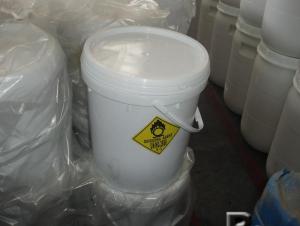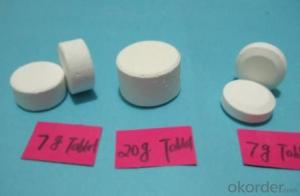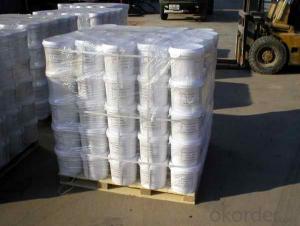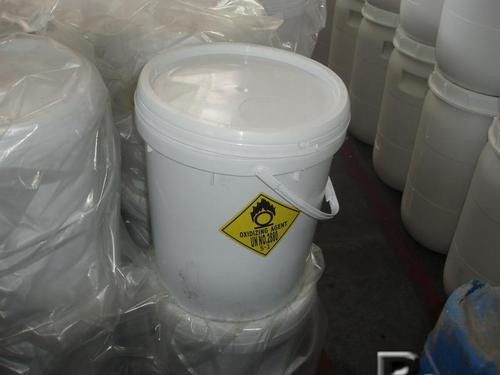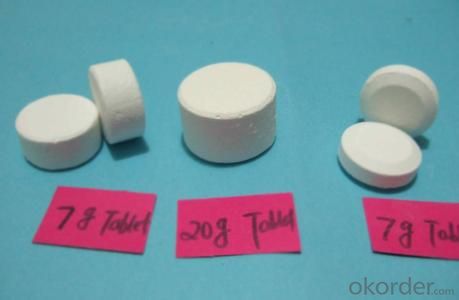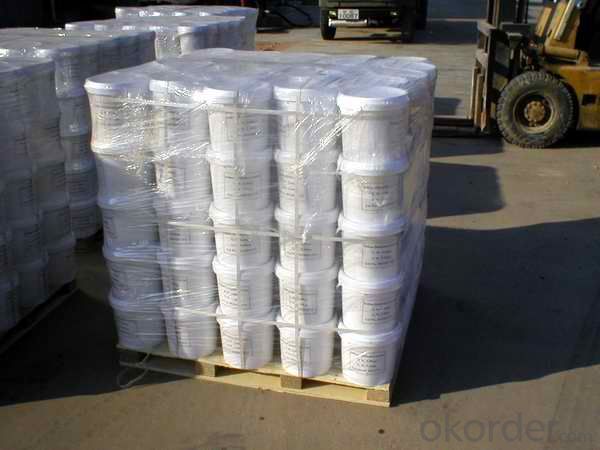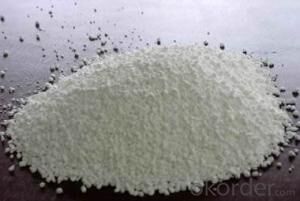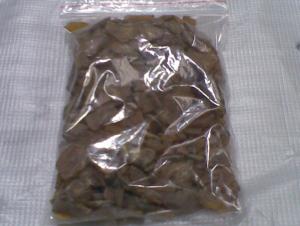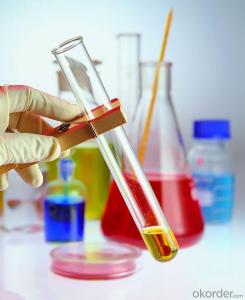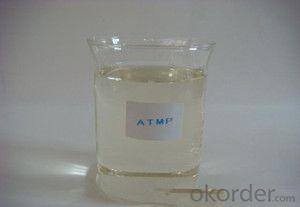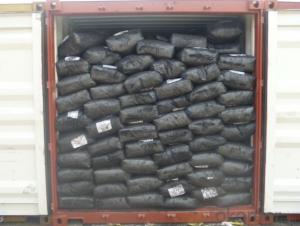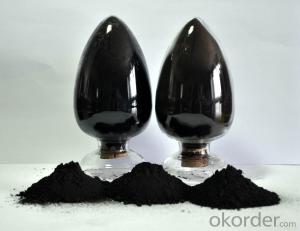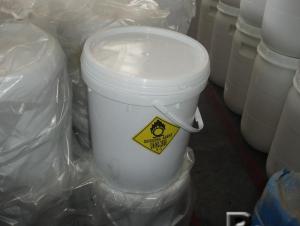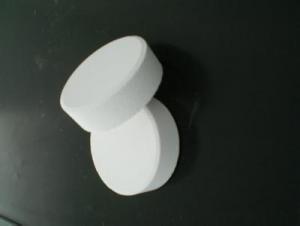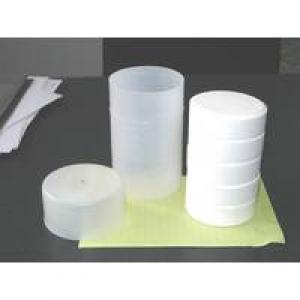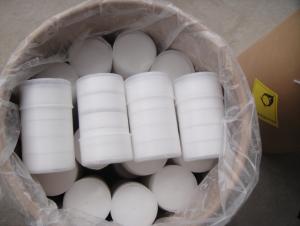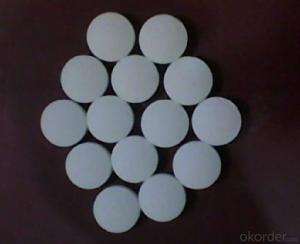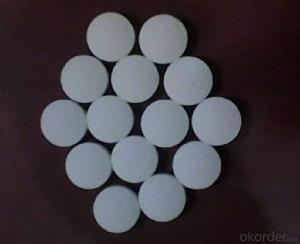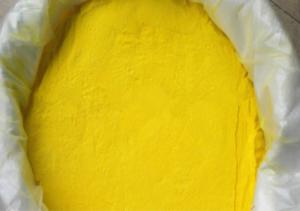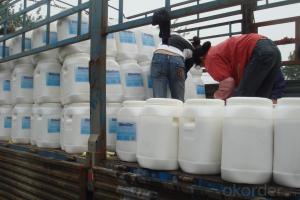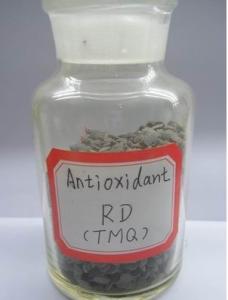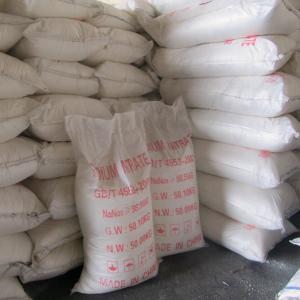Trichloroisocyanuric acid TCCA for Swimming Pool
- Loading Port:
- Tianjin
- Payment Terms:
- TT OR LC
- Min Order Qty:
- 22 m.t
- Supply Capability:
- 1800 m.t/month
OKorder Service Pledge
OKorder Financial Service
You Might Also Like
TCCA 90% Powder, Granular, Tablets
Introduction:
CNBM –TCCA White tablet with irritant chlorine odor. Slight solute in water. TCCA is the organic compound with the formula (C3Cl3N3O3). It is used as an industrial disinfectant, bleaching agent and a reagent in organic synthesis. This white crystalline powder, which has a strong "chlorine odour," is sometimes sold in tablet or granule form for domestic and industrial.
Application:
1. Water treatment: Swimming-pool, drinking water, industrial circulating-cooling water
2. Sterilization: Disinfecting in hospital, family, hotel,public place, pharmaceuticals, breeding industry
3. Bleach: Organic synthetic industry,Textile industry
4. Others: In doing shrink-proofing agents in wool finishing and paper mothproofing agent etc.
Specification:
Chemical Name | Trichloroisocyanuric Acid |
Molecular Formula | CONCL3 |
CAS Number | 87-90-1 |
Avaliable Chlorine %min | 90.00 |
Moisture content %,wt,Max | 0.30 |
PH Value (1% solution) | 2.7~3.3 |
Solubility 25℃ Water | 1.2g/100g |
Solubility 30℃ Acetone | 36g/100g |
Specific Gravity | 0.95(light)/1.20 |
Granular Particles Size
Mesh | 5~8 | 8~30 | 20~40 | 20~60 |
Tablets Forms
Weight | 200 gram | 150gram | 100gram | 50gram | 30gram | 20gram | 15gram | 10gram |
Diameter(mm) | 76 | 70 | 50 | 42 | 30 | 30 | 30 | 30 |
Height(mm) | 25 | 21 | 26 | 27 | 22 | 16 | 12 | 8 |
Multi-Functions
We made multifunctional tablets according to customers’ needs. For Instance, we press TCCA 90% granular with chemicals such as Boric Acid,. Sulfate Copper, Sulfate Aluminum And PAC.
Packing:
Granular& Powder:
50KG PLASTIC DRUMS/ FIBER DRUMS.
25KG PLASTIC DRUMS/FIBER DRUMS.
1000KG BIG BAGS.
Or any other packages suggest by customers.

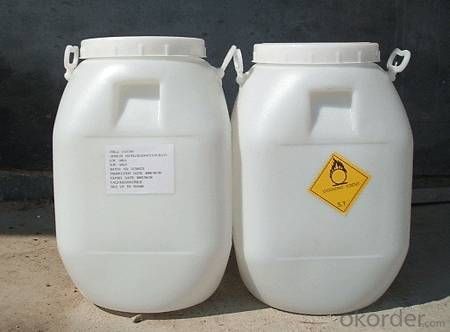
- Q: Does the catalyst participate in chemical reactions?
- In fact, my understanding is to participate in the reaction, but in the whole process of reaction is both a reactant and a product. But in the reaction process is to participate.
- Q: Hydrogen and oxygen in the role of the catalyst can do the chemical formula of aviation fuel?
- You two yeah? Meaning that hydrogen is ignited in oxygen to release energy to push the rocket forward, as the catalyst for those who love,
- Q: pls give one or two catalysts that are used in the industry for example:Rhodium catalyst in a catalytic converter of a car or the Iron catalyst for making ammoniaTHANKS :)
- i will tell you the hydrogen and carbonmonixide production in indsutry they will use alumina based nickel catalyst for adsorption of gases, at high temperature it will breaks as small molecules like hydrogen, co2, co,ch4, after they will separate them using carbon molecular seives as catalyst. another catalyst for hydrogenation of double bond is copper chromate for sulphur removal from disel and petrol they will use COMOX ( copper and molybdinum catalyst ) after then pass through zinc sulfide with hydrogen gas , the sulfur will removed as a hydrogen sulfide.
- Q: What are the requirements for the catalyst for the chemical industry?
- Generally find a few, according to the cost and cost of cost, choose cost-effective
- Q: What is the reaction in chemistry?
- Industrial production of ammonia, ethanol, industrial synthesis of ammonia, ethanol catalytic oxidation, acetaldehyde oxidation into acetic acid, ethyl acetate preparation, the transformation of automobile exhaust, benzene substitution reaction and addition reaction, some other addition reaction of hydrocarbons, Ethanol dehydration to produce ethylene and so on
- Q: Why extract the genome, the digestion is always not cut
- The process of metabolism in the body contains many complex and regular material metabolism and energy changes.Green plants and certain bacteria use solar energy, water, CO2 and inorganic salts and other simple substances, after a series of changes, the synthesis of complex sugar, Fat, protein and other macromolecules, and animals and the use of these plants in the material, and through the complex decomposition and synthesis, the reaction into their own part of the need to grow, breeding, etc. In the laboratory, complex The synthesis and decomposition of organic matter must be carried out under severe conditions such as high temperature, high pressure, strong acid and alkali, such as starch and protein hydrolysis, and some reactions are difficult to carry out in vitro, such as protein synthesis, but in biological conditions Mild (370C or so, near neutral pH), these reactions can be carried out smoothly and quickly.For example, animals eat meat in the digestive tract only a few hours will be completely digested and decomposed; bacteria in the appropriate conditions, Twenty minutes to proliferate generation, in this short twenty minutes, the synthesis of new cells within the need for all the complex substances, etc., what is the reason? This makes the chemical reaction in the body easier And the root cause of rapid progress is the prevalence of a catalytic role in the body of the protein - enzyme.
- Q: When you write a chemical equation, how do you want to add "catalyst" and "?" When you do not have to write?
- This is the need for your memory, write a few times, will naturally cooked
- Q: Is it not the rate to accelerate the addition of the catalyst to the catalyst, and that is why the balance does not move
- If the reaction before the catalyst, you can speed up the reaction rate, that is to achieve the balance required to reduce the time, but to balance the system when the same concentration
- Q: how do catalysts help in green chemistry?
- Catalysts allow more efficient conversion of products in irreversible reactions, or they allow for the faster attainment of equilibrium in equilibrium reactions, thereby reducing time, raw material waste and emissions. Also, because catalysts are reusable, they can be recycled.
- Q: An important property of the catalyst is that the reaction equilibrium is not changed while increasing the forward reaction rate and the reverse reaction rate. However, because the enzyme for the specificity of the substrate, is not almost every reaction by the enzyme are one way to do it.
- Enzymes, refers to the biocatalytic function of the polymer material, in the enzyme catalytic reaction system, the reactant molecules known as the substrate, the substrate catalyzed by the enzyme into another molecule. Similar to other non-biocatalysts, the enzyme changes the reaction rate by adjusting the Gibbs free energy of the chemical reaction, and most of the enzyme can increase the rate of its catalytic reaction by a million times; in fact, the enzyme is provided with another The activation energy requires a lower route so that more reactive particles produce more effective collisions to produce more kinetic energy. According to the first law of thermodynamics, the kinetic energy obtained by the collision can accelerate the reaction rate by transformation. The enzyme as a catalyst itself is not consumed in the reaction process nor does it affect the chemical equilibrium of the reaction.
Send your message to us
Trichloroisocyanuric acid TCCA for Swimming Pool
- Loading Port:
- Tianjin
- Payment Terms:
- TT OR LC
- Min Order Qty:
- 22 m.t
- Supply Capability:
- 1800 m.t/month
OKorder Service Pledge
OKorder Financial Service
Similar products
Hot products
Hot Searches
Related keywords
